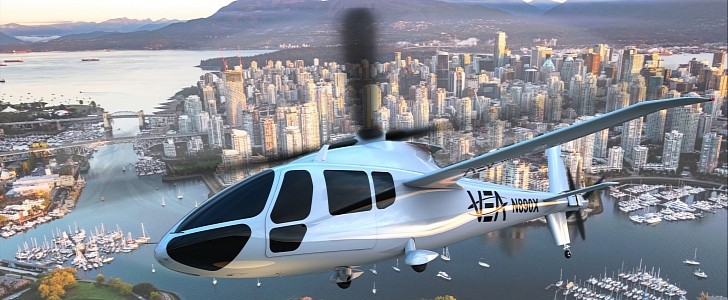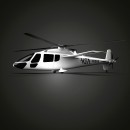As exciting as green air mobility sounds, it’s largely dependent on the development of battery and hydrogen fuel cell technology. Without the continuous improvement of these technologies, innovative types of aircraft, such as vertical takeoff and landing vehicles (VTOLs), won’t be able to operate on a large scale.
According to research cited by HyPoint, a company that’s developing hydrogen fuel cell systems for aeronautics, the global hydrogen aircraft market is estimated to grow rapidly within the next decades, getting from $27 billion in 2030 to $174 billion by 2040. On the other hand, studies also show that the eVTOL market is growing just as fast, so it makes sense to predict that developing hydrogen fuel cells for eVTOLs is becoming increasingly important.
HyPoint has just taken an important step in this direction, by partnering with Piasecki Aircraft Corporation, a rotorcraft and unmanned aircraft systems (UAS) platforms manufacturer, for the development of a certified hydrogen fuel cell system for eVTOLs. The $6.5 million agreement is focused on Piasecki’s PA-890 compound helicopter, which is set to become the world’s first hydrogen-powered manned helicopter.
HyPoint claims that its hydrogen system is revolutionary in terms of performance, providing four times more energy density than lithium-ion batteries on the market, and twice as much power as the current hydrogen systems that are available, while also cutting in half direct operating costs for turbine-powered rotorcraft.
This innovative fuel cell system was proven to deliver up to 2,000 watts per kilogram of specific power (three times more than liquid-cooled hydrogen), and an energy density of up to 1,500 watt-hours per kilogram, for a major increase in range.
Under this recent agreement with Piasecki, HyPoint will develop five 650kW hydrogen fuel cell systems for the PA-890 eVTOL. HyPoint will continue to own its hydrogen fuel cell technology, with Piasecki gaining exclusive license to it. However, the bigger goal is to eventually make this technology available to the entire eVTOL market, as a customizable solution.
The innovative approach of these two players in the aviation industry has already been recognized, which shows that they could be indeed headed towards a breakthrough. HyPoint won NASA’s iTech Initiative for its aviation applications, while Piasecki is working with the U.S. Air Force, through the AFWERX STTR/SBIR program that’s helping small companies commercialize groundbreaking technologies.
The two companies plan to develop the full-scale system within the next two years, and begin order deliveries by 2025.
HyPoint has just taken an important step in this direction, by partnering with Piasecki Aircraft Corporation, a rotorcraft and unmanned aircraft systems (UAS) platforms manufacturer, for the development of a certified hydrogen fuel cell system for eVTOLs. The $6.5 million agreement is focused on Piasecki’s PA-890 compound helicopter, which is set to become the world’s first hydrogen-powered manned helicopter.
HyPoint claims that its hydrogen system is revolutionary in terms of performance, providing four times more energy density than lithium-ion batteries on the market, and twice as much power as the current hydrogen systems that are available, while also cutting in half direct operating costs for turbine-powered rotorcraft.
This innovative fuel cell system was proven to deliver up to 2,000 watts per kilogram of specific power (three times more than liquid-cooled hydrogen), and an energy density of up to 1,500 watt-hours per kilogram, for a major increase in range.
Under this recent agreement with Piasecki, HyPoint will develop five 650kW hydrogen fuel cell systems for the PA-890 eVTOL. HyPoint will continue to own its hydrogen fuel cell technology, with Piasecki gaining exclusive license to it. However, the bigger goal is to eventually make this technology available to the entire eVTOL market, as a customizable solution.
The innovative approach of these two players in the aviation industry has already been recognized, which shows that they could be indeed headed towards a breakthrough. HyPoint won NASA’s iTech Initiative for its aviation applications, while Piasecki is working with the U.S. Air Force, through the AFWERX STTR/SBIR program that’s helping small companies commercialize groundbreaking technologies.
The two companies plan to develop the full-scale system within the next two years, and begin order deliveries by 2025.






